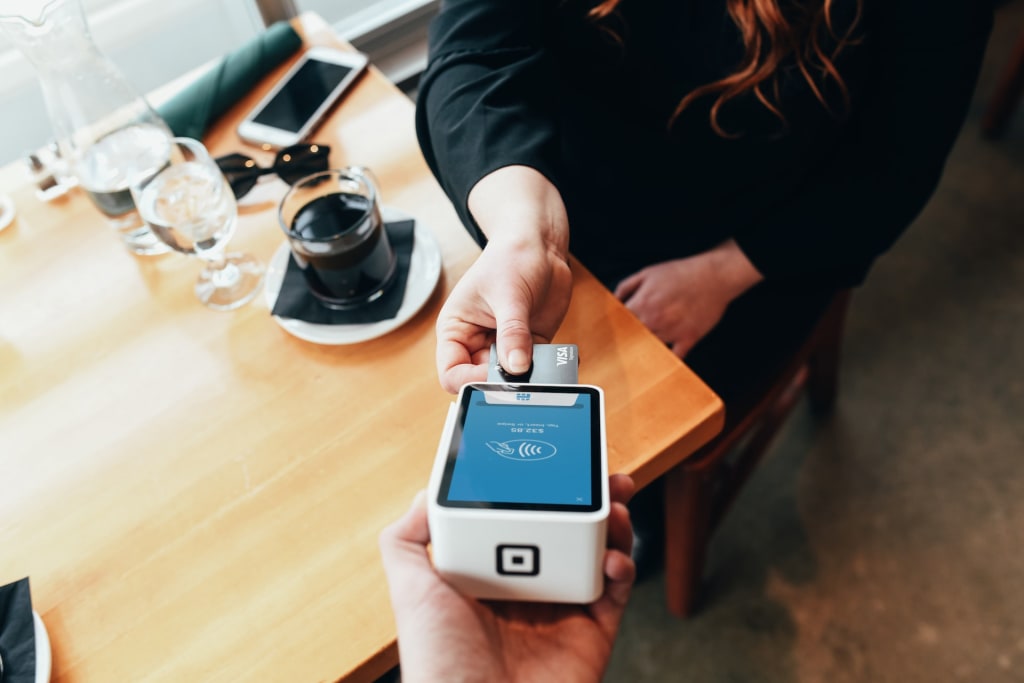Tips for collecting payments while maintaining a positive customer experience
Payment is a universal link that connects a merchant and a customer. This article will explain how to keep this connection positive, what to do to ensure payments through online payment gateway, and how to handle late transactions.

Payment is a universal link that connects a merchant and a customer. This article will explain how to keep this connection positive, what to do to ensure payments through online payment gateway, and how to handle late transactions.
Why is the checkout experience vital for a business?
It is critical to recognise that payment is the most common form of communication between a merchant and a customer. And if the meeting point is enjoyable, a customer may become a regular and spread the good word about a merchant's product or service. It also works the other way around: an unpleasant checkout experience will drive a customer away and may even harm the merchant's reputation.
Clients value customer experience more than brand and price factors combined, as it generates more than two-thirds of customer loyalty. If merchants provide a personalised experience, 80 percent of customers are more likely to buy the product or service. 40% of consumers are willing to spend more than they planned if offered experiences are highly personalised to them. And, as a result of poor personal treatment, 48% of customers left the checkout area without purchasing.
Make checkout process pleasant
The checkout process is critical. It has a direct impact on the number of sales and the overall customer experience. In other words, a well-established checkout process leads to increased profit and a positive reputation. However, there are several factors to consider when configuring the checkout flow.
Payment methods
The first step is to accept as many payment methods as possible, taking into account your customer base. Aside from the standard credit and debit card payments, we recommend analysing the audience and researching local popular payment methods to include other methods.
Transaction location
The virtual space where a customer makes payments is referred to as transaction location. It can be on-site, such as on the merchant's website, or it can be redirected to another service for payment collection. Customers typically have little or no trust in the redirected checkout experience, aside from well-known payment services.
Design
Although it may appear obvious, no one wants to waste time locating the required button and determining how to proceed to payment. The checkout design is the main selling tool for a merchant, and it must be in logical and simple order.
Ask for payments upfront
Paying in advance may appear to be purely beneficial to the merchant. That is correct. True, if a customer pays in advance, the merchant can better plan and secure the profit as well as the relationship. However, there is an advantage for the customer. Paying in advance ensures that the product or service is delivered on time.
Clearly communicate the expectations
A clear agreement regarding payment details and payment collection through the best online payment gateway must be reached by both a merchant and a client in order to provide a positive customer experience. Dates, payment methods, whether the payment is direct or deposited, possible discounts and promotions, return and warranty policies, and invoice-related information should all be included in this agreement. The document must be available at all times; it can be sent via email, mailed, or kept in the personal client's space on the website, whichever is preferable.
Send polite follow-up emails
Follow-up emails in 2021 serve as an official confirmation that the payment was made. Invoice information, delivery details, and other important aspects of the transaction must be re-sent via email.
However, there is no need to blame a customer if the payment is late or not processed until the end. There are a hundred reasons why the schedule might be disrupted. The email could be stuck in the spam folder, a customer could be disconnected from the network for an extended period of time, or the person in charge of payments could be unavailable for any number of reasons.
To remedy the situation, we recommend first politely reminding a customer about collecting payments after a week or so. Immediate pressing would be detrimental to a merchant's reputation and could even result in the payment event being cancelled. If no response is received after the first follow-up, it is prudent to try another mode of communication, such as phone, physical letter, social media, and so on.
Offer a personalized invoice schedule
When it comes to collecting late payments or accepting large sums at once, we recommend creating a personalised invoice schedule. Collecting all late payments with a single invoice can be very stressful.
To begin with, a customer may feel guilty for the delay, so taking all of the funds for all previous payments is not the best option for a merchant who wants to maintain good relations. The better option is to propose splitting payments into acceptable time periods. A customer would appreciate the approach, and a merchant could plan for the anticipated income.
The same scheme works well with significantly higher charges. A merchant may provide a customer with a divided scheduled payoff as well as other personalised bonuses.
Contact other people at the company
Collecting payments from corporations and businesses requires a different approach than collecting payments from individuals. The agreement should be more formalised in terms of all payment details, schedules, and the contact person in charge of payment delivery.
Payment is frequently not made due to a personal factor in the company. Vacation, position rotation, and new personnel factors can all have an impact on payment collection. A merchant's only option is to establish a clear written agreement, even if the person in charge of the payment is not available for whatever reason.
Consider customer value
After all, some clients aren't worth the effort. Late payments, unscheduled interruptions, and disrespectful behaviour all harm the merchant's business flow. It is indeed less expensive, both financially and in terms of time, to terminate the agreement with such a client or company. If the situation is critical, a merchant should consider involving legal institutions to resolve the payment collection issue.
Tips for collecting from late-paying customers
Let us summarise how to collect past-due payments.
Positive approach
Most problems can be solved simply by taking a customer-oriented approach. Keeping a positive attitude, gently reminding the customer, and taking a step towards the customer is the best way to get the payment delivered.
Keeping track
Keeping track of all late payments is essential for a merchant. A clear system with reminders and payment status is critical in determining the stage of the late payment.
Proposing a dividend payment
Proposing a dividend payment may be a good option for customers who have accumulated debt. A single late payment can also save the situation.
Starting with an email
An email is always the first step. The customer is responsible for a polite reminder with payment details and merchant insurance. Allow one week for a response to an email.
Following with a call
The next step is to make a phone call. Emails can be lost, and the person in charge of payments may be unavailable. A phone call could solve this simple problem. In addition, depending on the customer or company type, a call can be replaced with a message, physical letter, and so on.
Hiring a collection agency
If none of the methods resulted in a payment being made to a merchant's wallet through online payment gateway India, it is time to resort to clearly not polite methods. A collection agency usually collects the debt and takes a percentage of the amount, or it can pay a merchant off, assuming ownership of the late payment.
Taking legal action
The final stage is a court hearing if the case is worthwhile. The merchant must decide whether or not to proceed based on the lawyer's fees and all other legal fees.
About the Creator
Amit Kumar
Full-time thinker & part-time writer...






Comments
There are no comments for this story
Be the first to respond and start the conversation.